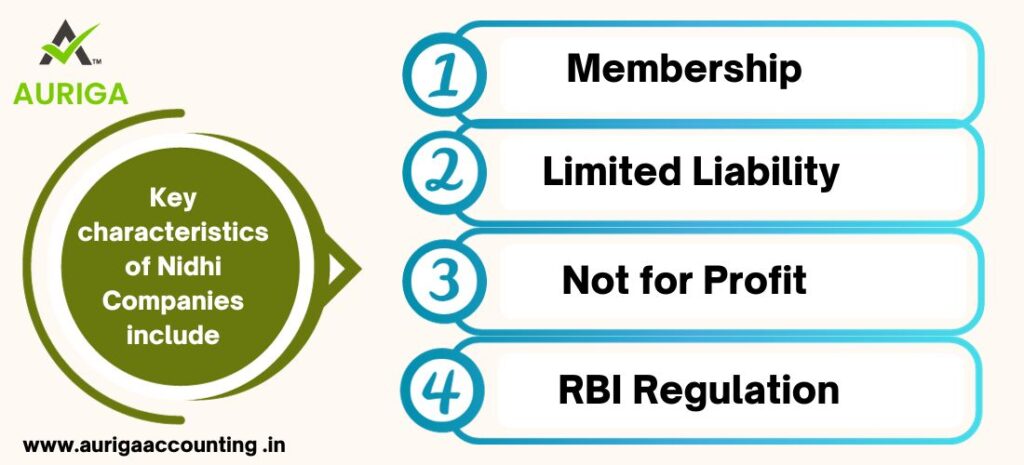
ARE NIDHI COMPANY DEPOSITS SAFE AND SECURE?
Introduction
ToggleYOU NEED TO KNOW ARE NIDHI COMPANY DEPOSITS SAFE AND SECURE?
Nidhi Company are generally considered safe and secure as they are regulated by the Ministry of Corporate Affairs in India. These companies operate under the Nidhi Rules, which aim to protect the interests of depositors. However, like any financial investment, there are inherent risks, and potential investors should conduct thorough due diligence before investing. It’s crucial to choose reputable and compliant Nidhi companies to ensure a higher level of safety for deposits. Visitofficialwebsite
What Are Nidhi Companies?
Nidhi Companies, also known as Mutual Benefit Companies, are a specific class of non-banking financial companies (NBFCs) that exist primarily for the purpose of cultivating the habit of thrift and savings among their members. They operate on a mutual benefit principle, wherein the contributions of each member are pooled to provide financial assistance to its members in the form of loans, deposits, and other financial services.
Regulatory Framework
The regulatory framework for Nidhi Companies in India is governed by the Nidhi Rules, 2014, which fall under the regulatory purview of the Reserve Bank of India (RBI). The primary objective of these rules is to provide a legal framework for the formation and operation of Nidhi Companies to ensure the safety and security of the deposits made by their members.
Some key regulatory provisions for Nidhi Companies include:
Minimum Net Owned Fund: Nidhi Companies are required to maintain a minimum net owned fund of Rs. 10 lakhs, which ensures that they have adequate capital to support their operations.
Minimum Membership Requirement: A Nidhi Company must have a minimum of 200 members within one year of its incorporation.
Maximum Unencumbered Deposits: Nidhi Companies are not allowed to have unencumbered deposits exceeding 1.25 times of their outstanding deposits. This restriction ensures that the company maintains a prudent deposit-to-capital ratio.
Deposit Acceptance Restrictions: Nidhi Companies are permitted to accept deposits only from their members and not from the general public. This is a protective measure to ensure that the funds primarily serve the needs of the members.
Lending Activities: Nidhi Companies are allowed to extend loans to their members against various securities, including gold, immovable property, and other forms of collateral.
Interest Rate Cap: The RBI has set an upper limit on the interest rates that Nidhi Companies can offer on deposits and charge on loans, preventing them from engaging in usurious practices.
Audit and Reporting Requirements: Nidhi Companies are required to undergo regular audits and submit financial reports to the RBI to ensure transparency and accountability.
The regulatory framework provides a level of oversight and control over Nidhi Companies to safeguard the interests of their members. However, it’s important to note that compliance with these regulations varies among different Nidhi Companies, and members should exercise due diligence when choosing where to deposit their funds.
The Safety and Security of Nidhi Company Deposits
The safety and security of deposits with Nidhi Companies depend on several factors:
Regulatory Oversight: As mentioned earlier, Nidhi Companies are subject to regulatory oversight by the Reserve Bank of India (RBI). This oversight includes rules and guidelines related to capital adequacy, deposit acceptance, lending practices, and reporting requirements. The presence of regulatory oversight is a significant factor contributing to the safety and security of deposits.
Limited Liability of Members: One of the fundamental principles of Nidhi Companies is the limited liability of their members. In case the company faces financial difficulties or defaults, the personal assets of the members are generally protected. This offers a level of security to depositors.
Community-Based and Trust Factor: Nidhi Companies often operate in small, close-knit communities. The trust factor is high among members, and this community-based approach adds to the perceived safety of deposits. Members often have a sense of responsibility towards the company and each other, which can act as a safeguard.
Interest Rate Cap: The RBI has imposed restrictions on the interest rates that Nidhi Companies can offer on deposits. By preventing them from offering exorbitant rates, depositors are protected from the risk of unsustainable financial practices that could jeopardize the safety of their funds.
Collateral-Based Lending: Nidhi Companies typically lend to their members against collateral. This collateral can include gold, property, or other assets. This practice helps mitigate risk, as there is a physical asset to back the loan, reducing the risk of default.
Evaluating the Safety and Security of Nidhi Company Deposits
When considering depositing funds with a Nidhi Company, it’s essential to take a cautious and informed approach to assess the safety and security of your investments. Here are some key steps to evaluate Nidhi Company deposits:
Due Diligence: Before becoming a member and depositing funds, conduct thorough due diligence on the Nidhi Company. This includes researching its history, financial stability, management, and reputation within the community. Try to gather information from existing members and community members who have experience with the company.
Regulatory Compliance: Ensure that the Nidhi Company is compliant with the Nidhi Rules, 2014, and that it has the required regulatory approvals from the RBI. Verify that it is adhering to the prescribed limits on deposits and lending rates.
Financial Soundness: Assess the company’s financial health by reviewing its annual reports, audited financial statements, and any available performance indicators. A strong and stable financial position is a positive sign.
Lending Practices: Understand the company’s lending practices, including the types of collateral it accepts and its underwriting standards. Ensure that lending is conducted prudently and does not involve excessive risk-taking.
Transparency: Evaluate the transparency of the Nidhi Company’s operations. It should provide you with clear and accessible information about your account, including statements, interest rates, and any fees or charges.
Red Flags: Be cautious of any red flags, such as unusually high-interest rates, promises of guaranteed returns, or pressure to invest. These can be indicators of fraudulent or unsustainable practices.
Legal Documentation: Review all legal documents, including the membership agreement and terms and conditions. Ensure that these documents are clear and that you fully understand your rights and obligations.
Diversification: Consider diversifying your investments across different financial institutions and asset classes. Spreading your risk can help safeguard your financial well-being.
Stay Informed: Keep yourself updated about the company’s performance and any changes in its operations. Staying informed can help you make timely decisions to protect your investments.
Community Feedback: Seek feedback from existing members and the local community. Their experiences and perceptions can provide valuable insights into the safety and reliability of the Nidhi Company.
Exit Strategy: Have a plan in place for withdrawing your funds if needed. Knowing how to exit your investment can be essential in times of financial distress.

Key characteristics of Nidhi Companies include:
Membership: Nidhi Companies operate as membership-based organizations, meaning they primarily serve their members, who are also shareholders of the company. These members contribute funds to the company and are eligible to receive financial services in return.
Limited Liability: Members of Nidhi Companies have limited liability, which means that their liability is restricted to the nominal value of shares they hold in the company. In case the company faces financial distress, the personal assets of the members are generally protected.
Not for Profit: Nidhi Companies are essentially non-profit organizations. They are not established to maximize profits but to promote the financial welfare of their members.
RBI Regulation: Nidhi Companies are regulated by the Reserve Bank of India (RBI) under the Nidhi Rules, 2014. These rules set forth the conditions and regulations under which Nidhi Companies can operate.
What is the rule 15 of Nidhi
A Nidhi Company can provide loans to its members only. However, there are certain limits up to which it can provide such loans. Rule 15 of Nidhi Rules, 2014 specifies that the amount of loans that a Nidhi company can provide depends on the deposits it accepts from the members.
Is Nidhi deposit safe
Deposits in a Nidhi company is safe and secure because the Ministry of Corporate Affairs, Government of India and Reserve bank of India has framed rules and regulations to ensure the safety and security of Deposits in a Nidhi Company which includes maintaining prescribed SLR(Statutory Liquidity Ratio).
Is Nidhi Company under RBI
The Nidhi Companies are regulated by the Reserve Bank of India and are required to comply with the guidelines issued by the RBI. The RBI has prescribed the eligibility criteria, capital requirement, net-owned fund, prudential norms, audit requirements, reserve fund and disclosure requirements for Nidhi Companies.
Is Nidhi Company legal
Nidhi companies are governed by Nidhi Rules, 2014. They are incorporated in the nature of Public Limited company and hence, they have to comply with two set of norms, one of Public limited company as per Companies Act, 2013 and another is for Nidhi rules, 2014.
Can a Nidhi Company provide locker facility
Nidhi Company’s primary goal is to conduct all loan and borrowing activities in-house, with no third-party involvement. Nidhi Rules, 2014 authorise Nidhi to provide locker facilities for rent to its members. During the fiscal year, the rental revenue should not exceed 20% of the company’s total income.
What are the deposit rules for Nidhi
A Nidhi shall not accept deposits exceeding twenty times of its Net Owned Funds (NOF) as per its last audited financial statements. The Nidhi Company may accept savings deposit, fixed deposit and recurring deposit and other deposits.
Is Nidhi Company a chit fund
What is the minimum deposit for Nidhi Company
Can a Nidhi Company become a bank
It is possible to convert a Nidhi Company to NBFC. This conversion requires the NIDHI to comply with the requirements of the regulations governing NBFCs and obtain necessary licenses from the Reserve Bank of India (RBI) or other regulatory bodies.
What is the rule 5 of Nidhi Company
Rule 5 of Nidhi Rules, 2014 is not applicable to companies incorporated after the commencement of Nidhi (Amendment) Rules, 2022. Such companies are not required to comply with the requirements of Rule 5 regarding Minimum Number of Members, Net Owned Funds, etc. within one year of incorporation
Can a Nidhi Company pay commission
A Nidhi Company is not permitted to pay any commission or brokerage for mobilizing member deposits, deploying funds, or awarding loans. It is a component of deposit solicitation. It shall not recruit someone to collect deposits and so forth.
How does Nidhi Company make money
A Nidhi company, defined by Section 406 of the Companies Act, 2013, is an Indian non-banking finance company. Their core business is inter-member borrowed money and loaning. Perpetual funds, advantage funds, mutual advantage funds, and mutual gain companies are other identities for them
What is the difference between Nidhi Company and bank
The Nidhi Company is not treated as a for-profit corporation but rather as a mutual benefit organization whereas NBFCs are required to set up a current account. Nidhi Companies are unable to pay any brokerage fees. Nidhi Companies cannot provide any brokerage or inducement for mobilizing the member’s money.
What is the difference between Nidhi Company and Chit Fund
Is Nidhi Company a chit fund? A Nidhi Company is an NBFC that can only lend money or accept deposits, whereas a Chit Fund is also a committee like a Nidhi Company but only accepts payments made in instalments over a set period of time by its members. This is the main distinction between the two.
What is the difference between Nidhi Company and NBFC
Nidhi Company is a company that aims to start a company with less capital whereas NBFC company requires huge capital investment. In India, NBFC Companies and Nidhi Companies are working at an expansive and restricted scale respectively. There are undeniable advantages that one can enjoy by opting for Nidhi Company.
Conclusion
Nidhi Company deposits can offer a means of financial support and savings for individuals in rural and semi-urban areas. These community-based financial institutions are regulated by the Reserve Bank of India to ensure a level of safety and security for their members.
While the regulatory framework and limited liability of members provide a degree of protection, potential depositors must be aware of the risks associated with Nidhi Company deposits. Operational, credit, liquidity, and regulatory risks can impact the safety of deposits, and it’s essential to conduct due diligence and exercise caution when choosing a Nidhi Company.
How auriga accounting help you to define nidhi company deposit
Auriga Accounting, or any accounting and financial management service provider, can play a crucial role in helping Nidhi Companies define and manage their deposit-related processes. These services can help Nidhi Companies streamline their operations, maintain regulatory compliance, and ensure transparency in deposit management. Here’s how Auriga Accounting, or a similar service, can assist in defining Nidhi Company deposits:
Record-Keeping and Accounting:
Maintaining Accurate Records: One of the primary responsibilities of an accounting service like Auriga Accounting is to maintain accurate and up-to-date records of all financial transactions. This includes recording member deposits, interest earned, loans disbursed, and any other financial activities related to deposits.
Double-Entry Accounting: Accounting services typically use double-entry bookkeeping to ensure that all transactions are recorded accurately. This helps in maintaining the integrity of financial data.
Preparation of Financial Statements: Accounting services can prepare regular financial statements, including balance sheets, income statements, and cash flow statements. These statements provide an overview of the financial health of the Nidhi Company and help in tracking deposit-related activities.
Regulatory Compliance:
Compliance with Nidhi Rules, 2014: Nidhi Companies are subject to specific regulatory requirements, as defined by the Nidhi Rules, 2014. Accounting services can help ensure that the Nidhi Company complies with these rules by maintaining records and generating reports that demonstrate adherence to regulatory guidelines.
Statutory Audits: Accounting services can assist in preparing the necessary documentation and reports for statutory audits, which are required for Nidhi Companies. This ensures that the company is in compliance with regulatory standards.
Risk Management:
Internal Controls: Accounting services can help establish and maintain internal controls to mitigate operational and financial risks. This includes ensuring that the company’s financial transactions are properly authorized and that segregation of duties is in place.
Risk Assessment: Auriga Accountingcan assess the financial health of the Nidhi Company and identify areas of potential risk, helping the management take proactive steps to address these issues.
Transparency and Member Communication:
Member Statements: Accounting services can generate member account statements, which are essential for ensuring transparency and communication with members. Members should be able to access their deposit and loan information easily, and accounting services can facilitate this process.
Communication and Reporting: Accounting services can assist in generating periodic reports for members, summarizing their deposit activity, interest earned, and any loan obligations. Clear and timely communication fosters trust among members.
Financial Planning and Management:
Budgeting and Financial Planning: Accounting services can help Nidhi Companies create budgets and financial plans to manage resources effectively and achieve their financial objectives. This includes planning for deposit growth and managing investment strategies.
Tax Planning: Accounting services can provide guidance on tax planning, ensuring that the Nidhi Company is compliant with tax regulations and taking advantage of any applicable tax incentives.
Audit and Compliance Support:
Internal Audits: Accounting services can assist with internal audits to evaluate the Nidhi Company’s financial controls and operational processes. Identifying weaknesses in these areas helps strengthen internal governance.
Compliance Checks: Regular compliance checks ensure that the Nidhi Company is adhering to regulatory guidelines and that any necessary corrections are made promptly.












